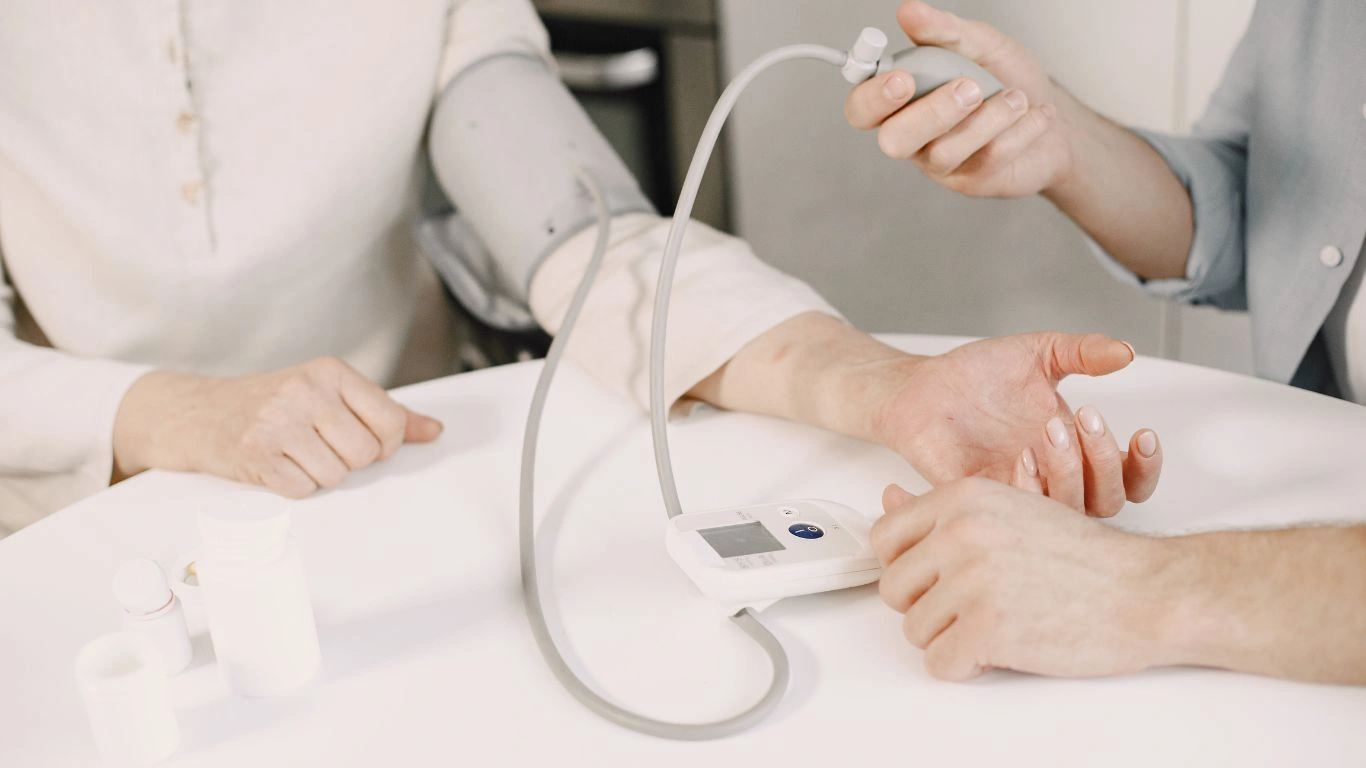How to Control Blood Pressure During Pregnancy – A Comprehensive Guide
Pregnancy is a beautiful journey, but managing your health during this time, especially blood pressure, is crucial for both mom and baby. If you’re wondering how to control blood pressure during pregnancy, you’re not alone! Many women face this challenge, but with the right approach, you can manage your blood pressure safely and effectively. Let’s dive into practical steps and tips to help you stay healthy during your pregnancy.
Pregnancy brings a lot of changes to your body, and managing your blood pressure is a big part of staying healthy for both you and your baby. High blood pressure during pregnancy, also known as gestational hypertension, can increase risks like preeclampsia or premature birth. The good news is that you can control your blood pressure with lifestyle adjustments, medical guidance, and a little bit of patience.
Let’s explore how to manage blood pressure during pregnancy with practical tips, lifestyle changes, and when to seek medical help.
Why Blood Pressure Matters During Pregnancy
Blood pressure is the force of blood pushing against the walls of your arteries. During pregnancy, your body works hard to support the growing baby, and sometimes that means your blood pressure can go up. While a little fluctuation is normal, consistently high blood pressure can lead to complications like preeclampsia, which is dangerous for both you and your baby. Monitoring your blood pressure and controlling it if needed is crucial to a healthy pregnancy.

How to Monitor Your Blood Pressure
Before jumping into controlling your blood pressure, it’s important to know how to monitor it. If you’ve been diagnosed with high blood pressure during pregnancy or just want to keep an eye on things, here’s what you can do:
1. Regular Check-ups
Your doctor will likely check your blood pressure at each prenatal appointment. However, if you have concerns, you can also get a blood pressure cuff at home and monitor it yourself. Keep a log to share with your doctor during appointments.
2. Understanding Your Numbers
Blood pressure is measured with two numbers: systolic (the top number) and diastolic (the bottom number). A normal reading is usually around 120/80 mm Hg. If your numbers go above this regularly, it’s important to talk to your healthcare provider.
Effective Ways to Control Blood Pressure During Pregnancy
Now that you know the basics, let’s talk about practical ways to keep your blood pressure in check during pregnancy.
1. Stay Active
Exercise is one of the best ways to control your blood pressure, but make sure to stick to pregnancy-safe activities. Regular, moderate exercise like walking, swimming, or prenatal yoga can help lower your blood pressure by improving circulation and strengthening your heart.
If you’re new to exercise, start slow and check with your doctor to make sure it’s safe for you. If you’re already active, keep up your routine, but listen to your body and avoid overexerting yourself.

2. Eat a Healthy, Balanced Diet
What you eat plays a huge role in controlling your blood pressure. A well-balanced diet with plenty of fruits, vegetables, whole grains, and lean proteins can help keep your numbers in a healthy range. Here are some dietary tips for managing blood pressure:
- Reduce salt intake: Too much salt can raise blood pressure. Opt for fresh foods instead of packaged ones, and try cooking at home to better control your salt intake.
- Increase potassium: Foods like bananas, sweet potatoes, and spinach are rich in potassium, which helps balance out the effects of sodium.
- Stay hydrated: Drink plenty of water throughout the day to keep your body functioning properly.
3. Manage Stress
Stress can cause a spike in blood pressure, so it’s essential to find ways to relax and de-stress. Try deep breathing exercises, meditation, or even simple activities like reading or taking a warm bath. Don’t be afraid to ask for help from family or friends to lighten your load.
4. Monitor Your Weight
Gaining weight during pregnancy is normal, but excessive weight gain can put extra pressure on your heart and increase the risk of high blood pressure. Talk to your doctor about a healthy weight gain range for your pregnancy and try to stick within it.
5. Get Plenty of Rest
Adequate rest is crucial during pregnancy, and lack of sleep can contribute to high blood pressure. Try to get 7-8 hours of sleep each night, and if you’re feeling extra tired, don’t hesitate to take naps during the day.
When to Seek Medical Help
If you notice any symptoms of high blood pressure, such as swelling in your hands or face, severe headaches, or blurred vision, it’s important to get in touch with your doctor immediately. In some cases, high blood pressure can lead to preeclampsia, a condition that requires medical attention.
Additionally, if your blood pressure readings are consistently high despite lifestyle changes, your doctor might suggest medication to help manage it. Never take medication for high blood pressure during pregnancy without your doctor’s approval.

Conclusion
Managing blood pressure during pregnancy is all about making smart lifestyle choices, keeping an eye on your health, and staying in touch with your healthcare provider. Regular check-ups, exercise, a healthy diet, and stress management are all key to keeping your blood pressure in a healthy range. And remember, if anything feels off or you’re concerned about your health, don’t hesitate to reach out to your doctor.
Appendices
FAQs
- What causes high blood pressure during pregnancy? High blood pressure during pregnancy can occur due to hormonal changes, weight gain, and other factors. Sometimes, it’s just a part of pregnancy, but it can also be a sign of conditions like preeclampsia.
- How can I lower my blood pressure naturally during pregnancy? You can lower your blood pressure by staying active, eating a healthy diet, reducing salt intake, staying hydrated, and practicing stress-relieving activities like yoga or meditation.
- Is it safe to take medication for high blood pressure during pregnancy? Some medications are safe to take during pregnancy, but it’s essential to discuss options with your healthcare provider before starting any treatment.
- What should I do if I have gestational hypertension? If you have gestational hypertension, your doctor will monitor you closely and might recommend lifestyle changes and medications to help control your blood pressure.
- How can I prevent preeclampsia? While you can’t always prevent preeclampsia, maintaining a healthy weight, reducing salt intake, staying active, and following your doctor’s advice can help lower the risk.
References
- American College of Obstetricians and Gynecologists. (2023). Managing Blood Pressure During Pregnancy. Read Article
- National Institute of Health (NIH). (2024). Pregnancy and High Blood Pressure: What You Need to Know. Read Article














